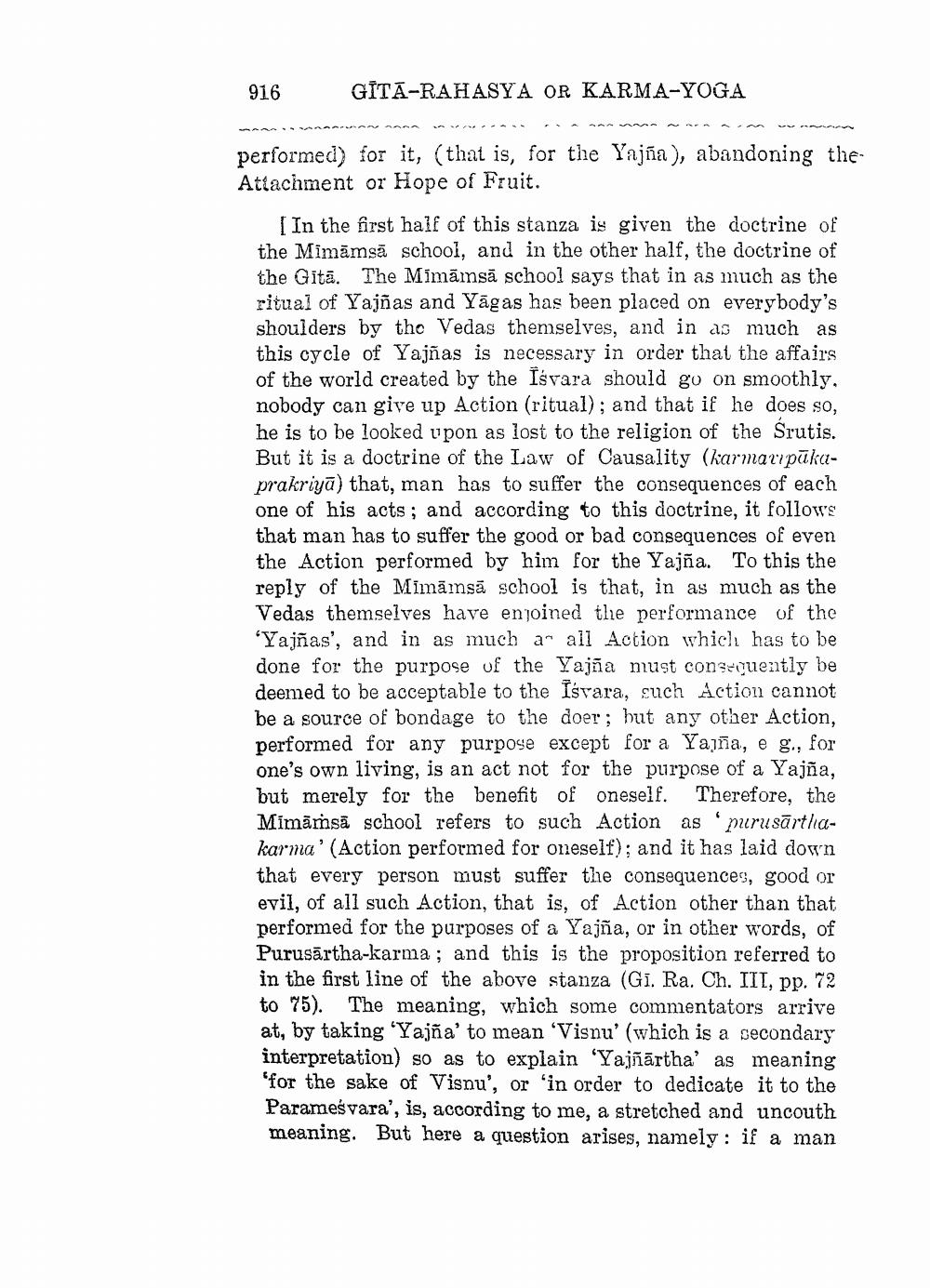________________
916
GITA-RAHASYA OR KARMA-YOGA
performed) for it, (that is, for the Yajña), abandoning the Attachment or Hope of Fruit.
[In the first half of this stanza is given the doctrine of the Mimāmsā school, and in the other half, the doctrine of the Gita. The Mimāmsā school says that in as much as the ritual of Yajñas and Yāgas has been placed on everybody's shoulders by the Vedas themselves, and in as much as this cycle of Yajnas is necessary in order that the affairs of the world created by the Isvara should go on smoothly. nobody can give up Action (ritual); and that if he does so, he is to be looked upon as lost to the religion of the Srutis. But it is a doctrine of the Law of Causality (karmar pūkaprakriyā) that, man has to suffer the consequences of each one of his acts; and according to this doctrine, it follows that man has to suffer the good or bad consequences of even the Action performed by him for the Yajña. To this the reply of the Mimāmsā school is that, in as much as the Vedas themselves have enjoined the performance of the 'Yajñas', and in as much an all Action which has to be done for the purpose of the Yajña must consequently be deemed to be acceptable to the Isvara, cuch Action cannot be a source of bondage to the doer; but any other Action, performed for any purpose except for a Yajna, e g., for one's own living, is an act not for the purpose of a Yajña, but merely for the benefit of oneself. Therefore, the Mimāṁsā school refers to such Action as 'purusārthakarma' (Action performed for oneself); and it has laid down that every person must suffer the consequences, good or evil, of all such Action, that is, of Action other than that performed for the purposes of a Yajña, or in other words, of Purusārtha-karma; and this is the proposition referred to in the first line of the above stanza (Gi. Ra. Ch. III, pp. 72 to 75). The meaning, which some commentators arrive at, by taking 'Yajña' to mean 'Visnu' (which is a secondary interpretation) so as to explain 'Yajñārtha' as meaning 'for the sake of Visnu', or "in order to dedicate it to the Parameśvara', is, according to me, a stretched and uncouth meaning. But here a question arises, namely: if a man




